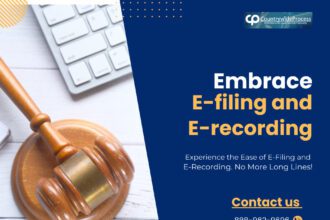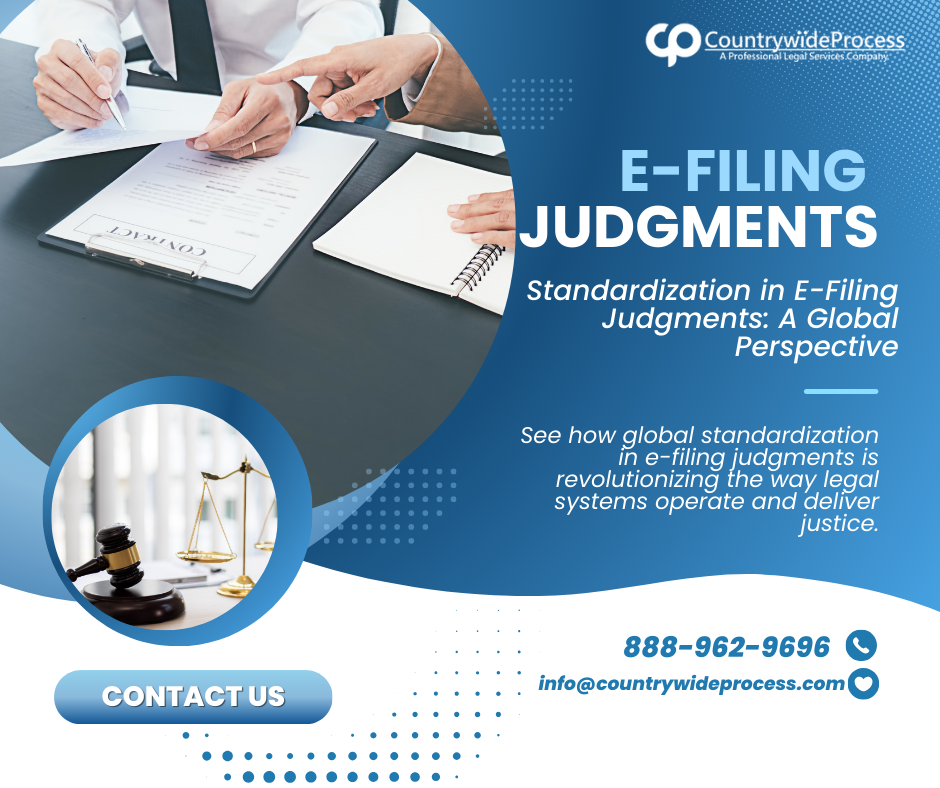The use of technology in the legal sector has triggered several changes in the profession, with e-filing judgments being a hallmark of these changes. However, the absence of similar practices by the different jurisdictions to enhance the functionality of this progression is a problem. They are implementing standard procedures for online e-filing, which significantly improves the legal platform’s speed, availability, and transparency.
Understanding Standardization in E-Filing Judgments
Standardization in e-filing judgments means developing norms, electronic forms, and guidelines for un-submitting, storing, and accessing court judgments. It encompasses several vital aspects, such as the information schema, the data description, document formats, security standards, and compatibility of various systems. Through these seemingly mundane techniques, legal systems ensure efficiency in working, the prevention of mistakes, and better international legal collaboration.
Global Approaches to E-Filing Judgments
Some countries have developed e-filing judgment systems with some level of effectiveness and elaborateness. Here’s a look at how some of these systems have evolved:
United States: Online e-filing have yet to gain wide acceptance in the U.S., but states are employing their systems. Despite a lack of a national format, work is progressing toward better compatibility and increased data sharing across jurisdictions.
United Kingdom: Compared to Global Giants, the U.K. has implemented a more centralized mechanism for e-filing judgments. The judiciary has adopted format standards for use in the e-filing system and has established a robust system for handling e-documents. This has extended the efficiency and logistics of access to court records nationwide.
Australia: Different Australian states have adopted e-filing judgments as a national practice. The federal and majority of the state and territory courts have adopted electronic filing systems to enhance federal consistency and access to the public record.
India: India is slowly and steadily progressing toward an electronic judiciary, and e-filing judgments have a prime position. However, some factors, such as poor infrastructure and low computer literacy, have hampered improved computing.
China: China has invested heavily in developing a complex e-recording procedure. The country has also introduced the central electronic filing and management of legal documents and even court judgments, thus improving its legal procedures.
The Benefits of Standardized E-Filing Judgments
Implementing standardized e-filing judgments offers many benefits, making it a crucial step in modernizing the judiciary.
Improved Efficiency: Adherence to legal forms and registering systems facilitates easy filing, sorting, and accessing of judgments, expediting activities under the law.
Enhanced Accessibility: E-filing enables law practitioners, parties to a case, and the public to view the decisions from the comfort of their terminals.
Increased Transparency: Due to standardized metadata and easily searchable databases, the opacity issues in the judicial system have been solved, and accountability has increased.
Cost Reduction: Simplifying filing procedures and minimizing paper use not only accelerates different procedures but also saves a lot of money for the courts and the parties involved in the dispute.
Facilitated Legal Research: Different and especially non-standardized data formats also make it convenient for legal researchers and analysts to extract the data for judgment and re-arrange the same to form the basis of their research analysis, which in turn helps improve the legal scholarly output.
Improved Collaboration: Promoted standardized systems improve collaboration among other legal entities, including the courts and legal professionals, on a national and international level.
Enhanced Security: Security in access to and in the contents of the records of the court is, therefore, a measure that should not be politicized but brought to standard measures that would ensure that only authorized personnel have access to the records and their content.
Global Interoperability: We have, therefore, argued that e-recording require adopting a standardized approach, which makes it easier for legal systems around the world to work together to support international processes and cooperation in the legal domain.
Environmental Sustainability: Attempting to propose a solution to decrease the amount of paper using e-filing, which would be formatted to standard references, could fit the frame of the ecological agenda of the legal system.
Conclusion
The push for standardization in e-filing judgments is about improving the efficiency of legal processes and ensuring that the judiciary keeps pace with technological advancements. By adopting standardized practices, countries can create more efficient, accessible, and transparent legal systems that better serve the needs of all stakeholders. While there are challenges to achieving complete standardization, the long-term benefits—from improved efficiency and cost savings to enhanced global cooperation—make it a goal worth pursuing. Standardization in e-filing is essential to evolving global judicial systems, offering a path toward a more interconnected and influential legal landscape.






